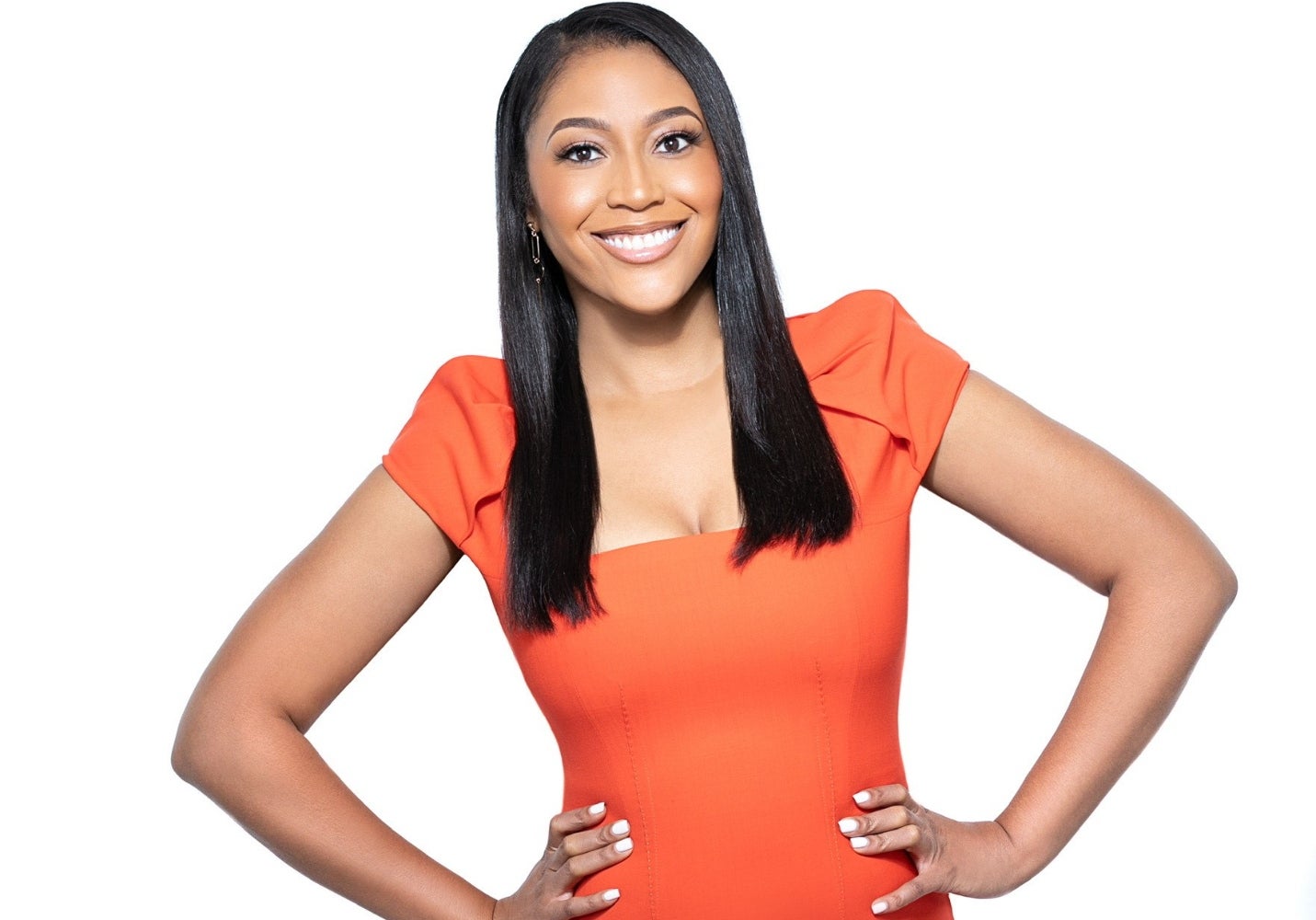
While Mental Health Awareness Month is coming to a close, the conversation about emotional well-being is one that can and should continue. ESSENCE spoke with Jade Mathis, daughter of the beloved Judge Greg Mathis, about her clinical depression diagnosis, how she overcame obstacles while training to become an attorney, and ways she manages her mental health on a day-to-day basis.
Mathis began carving an identity beyond the shadows of her father when she shared a viral testimony about failing the bar repeatedly before becoming a lawyer. She practiced for several years before deciding to pivot to focus on mental health advocacy full-time.
One of her latest ventures includes her upcoming show with her family, Mathis Family Matters, which will premiere Sunday, June 19 at 9:30PM ET/PT on E! On the show, she will use her platform to talk about her mental health struggles and show viewers what it’s like living and thriving with her diagnosis.
Here is what Mathis has to say about her journey and the advice she has for anyone whose story is similar to her own.
ESSENCE: When did you begin experiencing mental health challenges?
Jade Mathis: I was actually going into my junior year in college. I was about 20 years old and I was just having a difficult time focusing at school. I was at home in bed all day with the windows [and] the blinds closed, just in the dark, random crying and overwhelming sadness. My grades were taking a hit at school and I spoke to my dad and I said, “You know, something’s not right. I’m not sure what it is, but I just don’t feel well. And I’m not myself.”
He immediately said, “You need to go see someone. We’re going to have you go see a psychologist.” That is when I went in for testing. I thought she was going to say you need some rest or to go on a shopping spree, or to hit the reset button, but it was completely the opposite. And that’s when she told me, you have clinical depression, ADHD, and a learning disorder.
How did your diagnosis affect the way you see yourself and manage your mental health?
I was initially shocked and then I was hurt and embarrassed. I was ashamed. I was afraid because I didn’t know what that meant. I was 20 years old. I knew that meant my life wouldn’t be the same, especially when she told me I had to take medicine for the rest of my life. But one day, probably a couple months after the diagnosis, I just decided I’m not going to let this diagnosis defeat or define me.
I want to show other people who are in a similar situation or are just going through things that they aren’t alone, and you can still do whatever you want to do and be whoever you want to be and be successful with your diagnosis. So after that, I think the acceptance part is when things shifted, I finally accepted, This is what it is, and this is going to be your new norm.
People have this preconceived notion that a diagnosis [means] you’re crazy, but I said no, I’m just gonna write my own narrative. I’m going to go to law school. I’m going to become an attorney with a mental illness. And I’m going to advocate for myself and just own it.
How do you navigate these challenges on a day-to-day basis?
So one thing I learned to do is protect my ears, what I’m watching, and what I’m listening to, because what you’re watching and listening to has to go somewhere. You’re already overloaded with thoughts that most of the time with depression are negative. I was a news junkie, but I had to pull back from the news. I had to pull back from certain reality shows. Also, I learned to advocate on my own behalf. I learned to tell people when I’m not doing well, when I feel like I’m burning out before I get to the burnout. Being an attorney is a very high-paced occupation, very high-functioning, and it can be so overwhelming.
You have to realize you cannot pour from an empty cup. And another thing I learned to do is just give myself grace and realize it’s okay not to be okay all of the time. That is fine. It’s okay to have a bad day, but that day does not equate to a bad life.

What advice do you have for anyone who feels like their mental health is keeping them from achieving their goals? How can they navigate that?
When I speak to people, I tell them automatically this isn’t going to be easy. Your brain is not functioning like a person without a mental illness. So you always have to keep that in mind. My road is going to be difficult, period. However, you’re going to have highs and lows. You’re going to have victories and defeats, but you have to be intentional about seeking treatment and intentional about professional help, because that’s going to help keep you regulated and focused.
Most importantly, you have to be resilient and be able to bounce back. And some people say you have to bounce back quickly but I don’t think you have to bounce back quickly. I think you bounce back at your own pace, as long as you don’t give up. I failed the law school exam three times. And I had to sit out for a year, then I applied to six law schools and they all said, no. So I waited a year and I was accepted into one law school. Then I took the bar exam. I failed the bar exam five times and the last time I prepared to take the bar exam, the doctor found a lump in my throat, so I had a cancer scare.
I was going from biopsy to biopsy, studying for the bar exam and working full time and all of this was before the age of 30. But I made up in my head that I’m not going to stop and I’m not going to quit, and I’m going to go out swinging and fighting.
What kind of support from loved ones do you find has been most helpful as it relates to your mental health?
One thing we need is patience, grace and understanding. Each day is different. When dealing with a mental illness, sometimes based on how we feel that particular day, or if we’re in that particular cycle of depression, our perception of others and our perception, especially and most importantly of ourselves, isn’t always true and it’s not always rational, but it’s all reality.
Also, give us some space. Check in on us, we do want you to check in. But if you don’t hear back, don’t take it personal. We’re processing a lot of the stuff you want to process alone.
What kind of mental health advocacy work are you doing now?
I actually resigned November of 2021 and I decided to go into mental health advocacy and public speaking full time. So now I travel around the country and I speak at conferences. I speak at graduation ceremonies and I speak at schools. And most importantly, I speak at churches because I am a part of the faith-based community. I am a believer and active in church, and unfortunately, African Americans, and the faith-based community do not want to talk about mental health.
That’s something they don’t want to touch on. So mainly, I travel around to audiences and work with organizations and nonprofits and talk to African-American communities about the importance of accepting your diagnosis and getting help. While you’re praying for your miracle, take your medicine in the meantime.
My family, we have a new show Mathis Family Matters, and my platform on there is mental health. You rarely see anyone on television talking about mental health or being open and candid about their mental illness. I just want people to see, you can look normal, be high functioning, be professional, [and] you can do whatever you want to do. You can dress up, you can be attractive and you can still have a mental illness. That’s ok.





